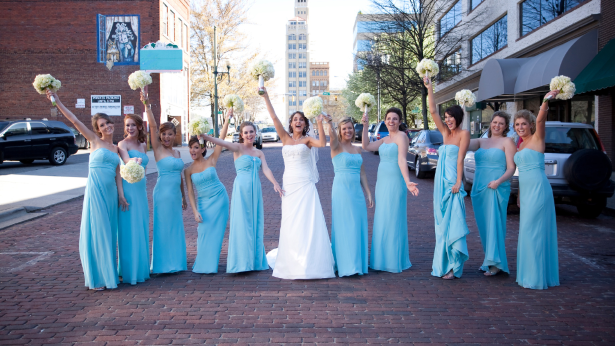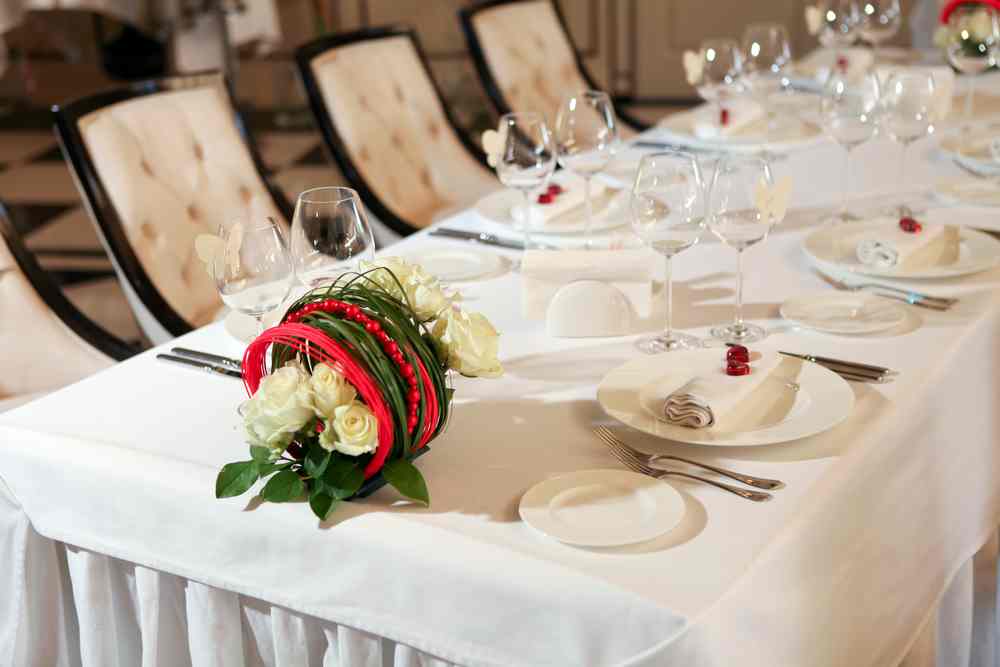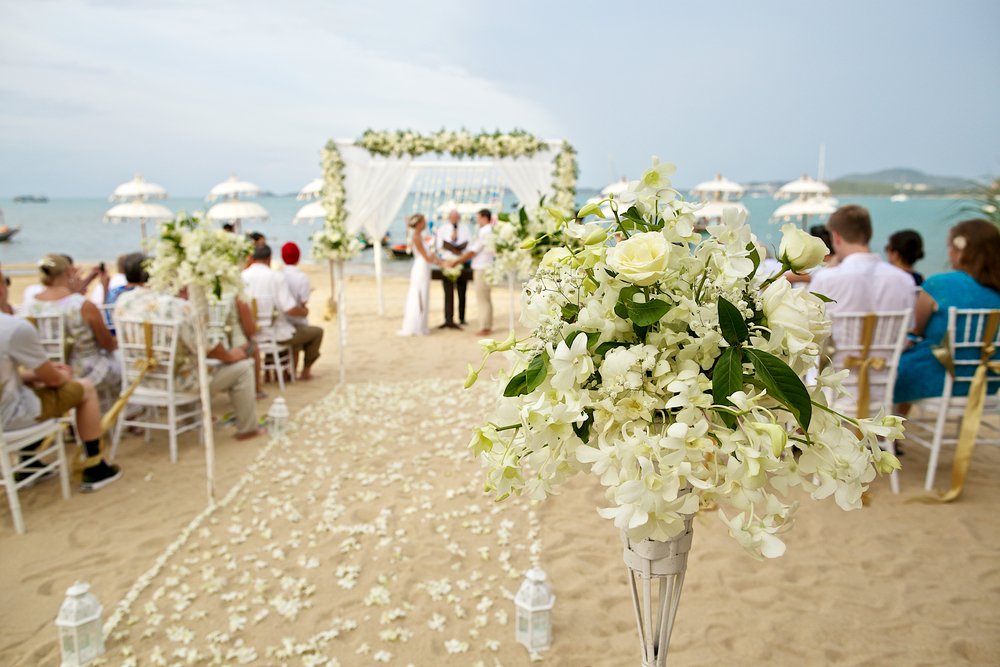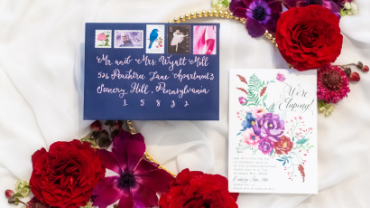Mastering Destination Wedding Etiquette
Are you planning on tying the knot in an exotic location? Congratulations! Destination weddings are a fantastic way to celebrate your special day with loved ones while exploring new surroundings. However, planning a destination wedding comes with its own set of unique challenges, particularly when it comes to navigating etiquette.
With so many traditional rules not applying to destination weddings, it can be overwhelming trying to figure out where to start. That’s where we come in – this article will provide you with expert advice and personalized tips on how to master destination wedding etiquette.
From who pays for what, to guest list considerations and vendor tipping, we’ll cover all the dos and don’ts of destination wedding etiquette. We understand that every couple is unique and has different needs and preferences when it comes to their big day.
So no matter where you plan on saying ‘I do,’our goal is to help ensure that your ceremony runs smoothly, stress-free, and memorable for everyone involved. So let’s dive into the world of destination wedding etiquette together!
Key Takeaways
- Traditional rules about who pays for a wedding do not apply to destination weddings, but hosts should pay for reception dinner and drinks, any arranged events, transportation to the venue if necessary, and any required day/guest passes.
- Save-the-dates or a personal website should be sent 6-9 months in advance, followed by formal invitations at least 2-3 months before the wedding. All guests should receive a save-the-date, but formal invitations can be limited to those who expressed interest in attending.
- The guest list for a destination wedding is up to the hosts’ discretion, but it is in poor taste to invite people to a shower but not the wedding. All guests can be invited to the rehearsal dinner or welcome party.
- Other etiquette considerations include inviting important people to a destination wedding, making it easier for them to attend, choosing whether to book excursions and activities, encouraging guests to stay at the same resort, handling gift-giving etiquette, and thanking guests and vendors for their services. Communication, research, and flexibility are also important in destination wedding planning.
Who Pays
When it comes to destination weddings, forget about traditional rules – the question of who pays is a whole different ball game. According to destination wedding etiquette, the hosts are expected to cover certain expenses such as reception dinner and drinks, any arranged events, transportation to the venue if necessary, and required day/guest passes. However, parents may only pay if their wishes for a local wedding are followed.
As for bridesmaids dresses and guests’ travel expenses, they’re not expected to be paid for but it’d be a kind gesture if possible.
It’s important that wedding guests know who pays for what when attending a destination wedding. Hosts should pay for any arranged welcome or rehearsal dinners and ensure that transportation is taken care of. As far as accommodations go, guests typically take care of their own lodging unless otherwise specified by the hosts.
Now that you understand who covers what costs at a destination wedding, let’s move on to discussing invitations.
Invitations

To ensure a successful invitation process for your destination wedding, it’s important to remember to send out save-the-dates or create a personal wedding website at least 6-9 months in advance. This gives guests ample time to arrange their travel plans and RSVP accordingly.
When creating your guest list for a destination wedding, it’s important to consider who you want present on your special day. While everyone should receive a save-the-date, formal invitations can be limited to those who have expressed interest in attending.
Additionally, it’s considered poor taste to invite someone to pre-wedding events like showers but not the actual ceremony. Keep these etiquette questions in mind as you move forward with planning and sending out invitations for your destination wedding.
Guest List
As you curate your dream team of guests, think of your guest list as a puzzle where each piece represents a special person in your life.
When it comes to destination weddings, the guest list can be more flexible than traditional hometown weddings. You have the discretion to invite only close family and friends or extend invitations to acquaintances who may not have been included in a local wedding. Keep in mind that travel expenses are not expected to be paid for by hosts, so consider the financial situation of your potential guests when finalizing your list.
Following etiquette rules, it’s important to send save-the-dates or create a personal website at least 6-9 months before the wedding date. This gives guests ample time to make arrangements and secure travel plans.
Now that you’ve curated your guest list with care and consideration, it’s time to start sending out those save-the-dates!
Save-the-Dates
Sending out save-the-dates is a crucial step in ensuring that your invited guests have ample time to prepare and plan for your destination wedding. Here are some tips on how to handle the save-the-date stage of your planning process:
- Send them out at least 6-9 months before the wedding date, giving guests plenty of time to make travel arrangements, request time off work, and budget for expenses.
- Include basic information such as the date, location, and a personal website link with additional details.
- Consider sending electronic save-the-dates instead of paper ones to reduce costs and environmental impact.
As you move forward with your planning process, it’s important to remember that formal invitations should still be sent even if travel information was already provided in the save-the-dates.
Formal Invitations
Don’t forget to make your guests feel truly special by sending out personalized formal invitations that will leave them excited and eager to attend your big day.
Formal invitations are a crucial part of destination wedding etiquette, as they provide guests with all the necessary information about the wedding details and travel arrangements. Make sure to include important details such as dress code, ceremony location, reception venue, and any other events you have planned.
To ensure that your guests have ample time to plan and prepare for your destination wedding, it’s recommended that formal invitations be sent at least 2-3 months before the wedding date. If you’re working with a wedding planner, they can help you design and send out these invitations in an efficient manner.
Remember to make each invitation personal and tailored specifically to each guest attending. This will show how much their presence means to you on your special day.
With formal invitations taken care of, let’s move on to discussing guest etiquette for destination weddings.
Guest Etiquette
When attending a destination wedding, you’ll want to make sure to RSVP promptly, as the average response rate for destination weddings is only 50%. This means that hosts need ample time to plan and organize events, accommodations, and transportation. As a guest, it’s important to respect their efforts by responding in a timely manner.
Additionally, guests should take into consideration their own financial situation when deciding whether or not they can attend the wedding. While hosts aren’t expected to pay for travel expenses, it’s still important for guests to budget accordingly and communicate any concerns with the couple.
In terms of gift etiquette, it’s appropriate to give a gift even if you’re already spending money on travel expenses. However, gifts don’t necessarily have to be physical items – experiences or contributions towards honeymoon activities are also thoughtful options. Remember that the most important thing is showing your support and love for the couple on their big day.
Speaking of travel expenses…
Travel Expenses
Now that you know the basics of guest etiquette for a destination wedding, it’s time to talk about travel expenses. While hosts aren’t expected to pay for guests’ travel expenses, there are still ways to make it easier for your guests to attend.
As part of your planning process, consider providing information on flights and accommodations in the area. You can also negotiate group rates with hotels or resorts to help alleviate some of the financial burden on your guests.
It’s important to be mindful of your guests’ budgets when planning a destination wedding. Keep in mind that travel expenses can add up quickly, so try to choose a location and date that is affordable and accessible for most people. Communicate openly with your guests about your expectations and any additional costs they may incur during their stay.
By being respectful of their financial situation and providing helpful information, you can ensure that everyone feels comfortable attending your special day.
As you continue planning your destination wedding, don’t forget the importance of having a wedding website. This platform will allow you to keep all essential information organized and easily accessible for both you and your guests. From travel details to registry links, a well-designed website can make all the difference in ensuring a stress-free experience for everyone involved.
Wedding Website
Creating a wedding website is an essential tool for keeping your guests informed and excited about your destination wedding. Your website should include key information such as travel details, accommodations, itinerary of events, registry links, dress code suggestions, and any other important details. Not only does it make things easier for your guests to navigate, but it also saves you time in answering individual questions.
To evoke an emotional response from your guests when designing the wedding website, consider the following:
- Use beautiful photos of the destination location to create excitement.
- Include personal stories or anecdotes about how you chose the location or why it’s special to you.
- Add interactive elements like quizzes or polls to engage with your guests.
- Provide recommendations for local activities or restaurants to explore during their stay.
- Show gratitude by including a personalized message thanking guests for attending.
When it comes to gift etiquette for a destination wedding, there are certain considerations that need to be kept in mind.
Gift Etiquette
Don’t stress about what to give as a gift for the big day – instead, keep in mind some key tips that will ensure you’re showing your appreciation without breaking the bank or causing any inconvenience.
When it comes to destination weddings, it’s important to remember that gift-giving is not mandatory. However, if you do choose to bring a gift for the bride and groom, consider sending it directly to their home before or after the wedding rather than bringing it with you on your trip. This can save you both time and hassle at the airport.
If you do decide to bring a gift with you, keep in mind that bulky items may be difficult to transport and could incur additional fees. Consider giving smaller gifts such as sentimental keepsakes or personalized items that are easy to pack.
Remember: guests should never feel obligated to bring a gift, especially when they’ve already incurred travel expenses. Simply being present at the wedding is more than enough of a gift for most couples!
With these destination wedding etiquette tips in mind, let’s move on to discussing how to show appreciation for those in the bridal party.
Bridal Party

If you want to make your bridal party feel valued and appreciated at your destination wedding, there are a few simple things you can do that will go a long way. Remember that they’re taking the time and expense to travel to your wedding, so it’s important to show them how much you appreciate their support.
Here are some ways to show proper destination wedding etiquette for your bridal party:
- Host a welcome dinner or cocktail hour for the entire group before the wedding day.
- Provide transportation for all events related to the wedding day.
- Gift each member of the bridal party with a thoughtful thank-you gift that reflects their individual interests and personalities.
- Allow flexibility in their schedules so they can enjoy some downtime at the destination if they choose.
- Communicate regularly with them about any changes or updates related to the wedding plans.
As you plan your engagement party, keep these same principles in mind when it comes to showing appreciation and gratitude towards those who’ll be standing by your side on your special day.
Engagement Party
Make your engagement party a celebration of your love story by incorporating meaningful symbols or photos that represent the milestones in your relationship. This is a great opportunity to share your excitement about your upcoming destination wedding with family and friends.
When planning the engagement party, consider the location and theme of your destination wedding and try to tie them together for a cohesive experience. It’s important to remember etiquette when it comes to inviting guests to the engagement party. Only invite those who will also be invited to the destination wedding, as it can be seen as rude if someone is invited to an engagement party but not the actual wedding.
Additionally, don’t expect gifts at the engagement party as this event is more about celebrating than gift-giving. With these tips in mind, you can plan an unforgettable engagement party that sets the tone for a beautiful destination wedding.
And speaking of setting tones, let’s talk about vendor tipping next.
Vendor Tipping
When it comes to tipping vendors for your destination wedding, you’ll want to show appreciation for their hard work and dedication. Here are a few tips to help guide you in the right direction:
- Research local customs: It’s important to know what is considered customary in the area where you’re having your wedding. Some cultures may not expect or even accept gratuities, while others may have specific guidelines.
- Consider the service provided: The amount of the tip should reflect the level of service provided by each vendor. For example, if your photographer went above and beyond to capture amazing shots, consider giving them a larger tip than someone who simply showed up and took pictures.
- Factor it into your budget: Tipping is an additional expense that should be factored into your overall budget when planning your destination wedding.
- Plan ahead: Be sure to have cash on hand for tipping on the day of the event. You can also designate someone from your wedding party or family member to handle distributing tips as needed.
As with all aspects of destination wedding planning, proper etiquette is key when it comes to vendor tipping. Showing appreciation for their hard work and dedication will go a long way in ensuring a successful and memorable event for both you and your guests.
Now that you have an idea on how much to tip vendors during your destination wedding, it’s important to remember that flexibility is key in this type of planning process.
Flexibility
Being open to changes and adjustments can lead to a stress-free and enjoyable destination wedding experience for both the couple and their guests. One of the benefits of having a destination wedding is that it offers more flexibility in terms of planning.
However, unexpected situations may arise, such as weather or flight delays, which may require last-minute changes to the ceremony and reception schedules. Therefore, it’s important to remain adaptable and have contingency plans in place.
In addition, being flexible also means considering the comfort and enjoyment of your guests. It’s essential to accommodate their needs by providing them with options that suit their preferences, such as different meal options or activities during downtime.
Remember that your guests are taking time off from their busy schedules and spending money on travel expenses to attend your special day, so being accommodating goes a long way in ensuring they have a memorable experience. With proper planning and flexibility, you can create a beautiful destination wedding that not only reflects your personalities but also makes everyone feel welcome and comfortable.
When it comes to communication in destination wedding planning…
Communication
Effective communication with vendors, guests, and the wedding party is crucial to ensure a smooth and enjoyable destination wedding experience for all involved. When planning a destination wedding, it’s important to keep everyone informed about travel arrangements, accommodations, and any planned events.
Send out save-the-dates well in advance so guests have plenty of time to plan their trip and make necessary arrangements. Follow up with formal invitations that include all the details they’ll need to know about the wedding itself.
As you communicate with your vendors, be clear about your expectations and ask for regular updates on progress. It’s important that everyone involved in planning the wedding understands what’s expected of them and knows how to reach you if there are any issues or concerns.
Effective communication can help prevent misunderstandings or last-minute changes that could cause stress or disappointment for guests or members of the bridal party. With careful planning and open communication, you can create a truly memorable destination wedding experience that will be cherished by all who attend.
Once you’ve successfully communicated with your vendors and guests throughout the planning process, it’s important to show your appreciation by thanking them for their services.
Thanking Guests and Vendors
Now that you’ve successfully communicated with your guests and vendors for your destination wedding, it’s time to focus on thanking them for their time and services.
Thanking your guests and vendors is an important part of destination wedding etiquette because it shows appreciation for their efforts in making your special day a success.
For destination wedding guests, a handwritten thank-you note or personalized gift is a thoughtful way to express gratitude for traveling the distance to attend your wedding. You can also consider hosting a farewell brunch or activity as a final send-off gesture.
When it comes to vendors, tipping is customary but not mandatory in some countries. It’s important to research tipping etiquette before arriving at the destination and be prepared with cash envelopes if necessary.
Additionally, leaving positive reviews online or recommending them to other couples planning a destination wedding can go a long way in showing your appreciation.
By taking the time to thank both guests and vendors, you’ll leave a lasting impression of gratitude while staying true to proper destination wedding etiquette.
Frequently Asked Questions
How can I politely decline attending a destination wedding due to financial constraints?
You can politely decline attending a destination wedding due to financial constraints by expressing your regrets and thanking the hosts for their invitation. Offer congratulations and explain that you are unable to attend at this time.
Is it appropriate to request that guests wear specific attire at a destination wedding?
It is appropriate to suggest attire guidelines for your destination wedding, but be considerate of guests and avoid overly formal dress codes. Communicate the suggestions clearly on invitations or through your wedding website.
Should I bring a gift to a destination wedding, and if so, should it be shipped or brought to the wedding?
Yes, you should bring a gift to a destination wedding. It’s up to you whether you ship it ahead of time or bring it with you. Consider the size, weight, and fragility of the gift when making your decision.
Can I invite guests to attend only the ceremony and not the reception at a destination wedding?
It’s generally not considered proper etiquette to invite guests to the ceremony but not the reception at a destination wedding. All guests should be invited to both events, or neither. Consider adjusting your guest list accordingly.
How do I handle unexpected changes in the wedding itinerary or location at a destination wedding?
If there are unexpected changes in the wedding itinerary or location at a destination wedding, communicate promptly and clearly with guests. A survey found that 68% of guests prefer to be updated via email.
Conclusion
Congratulations, you’ve successfully learned the dos and don’ts of destination wedding etiquette. By following our personalized advice, your special day is sure to be a success.
Remember to communicate effectively with your guests and vendors, stay organized, and show consideration for those involved in your big day.
As you embark on this exciting journey, keep in mind that a destination wedding is more than just a celebration of love. It’s an opportunity to create lasting memories with loved ones in a beautiful location.
Think about incorporating personal touches into your ceremony and reception that reflect the culture and traditions of your chosen destination.
In closing, planning a destination wedding may seem overwhelming at first but with proper preparation and execution, it can be an unforgettable experience for all involved.
So go ahead and say ‘I do’ in paradise – you won’t regret it!
References
https://www.marthastewart.com/7971262/destination-wedding-dos-and-donts
https://www.brides.com/gallery/destination-wedding-etiquette-questions







